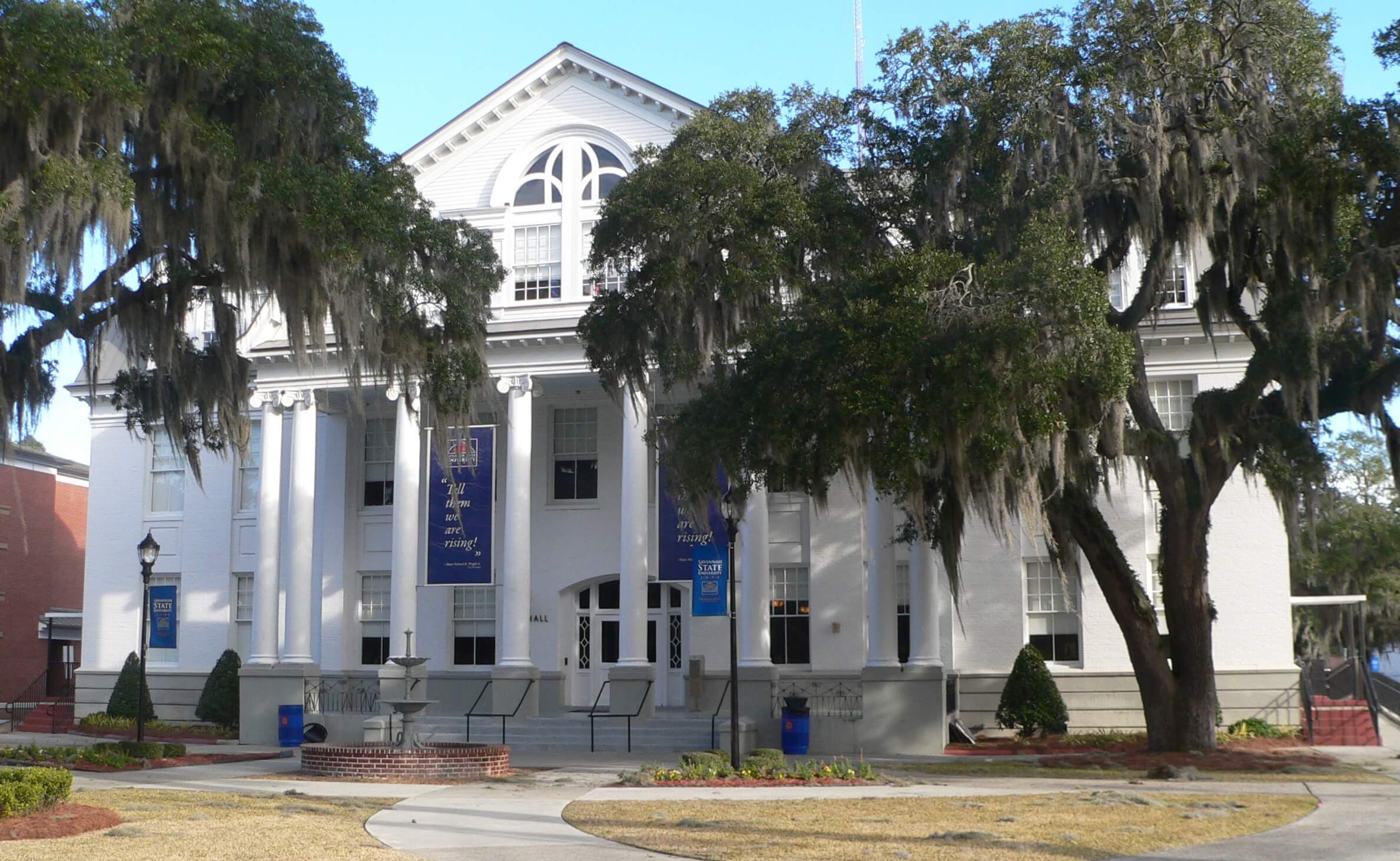KEY INSIGHTS
- The University System of Georgia approved a new set of changes to the review process for tenured faculty
- Critics say the changes undermine academic freedom in the state, which could impact HBCU professors
- They point to the recent battle over tenure for Nikole Hannah-Jones as a prime example of what Black scholars study potentially putting their tenure in jeopardy
The system that governs more than two dozen Georgia colleges and universities, including three historically black universities, is facing backlash and an investigation after it made changes to the tenure process that critics say undermine academic freedom in the state.
In mid-October, the Board of Regents for the University System of Georgia (USG) approved a new set of changes to the review process for tenured faculty.
“It puts the whole idea of academic freedom into question,” Glinda Rawls, Chair of the Racial Equity and HBCU committees at the American Association of University Professors (AAUP), told The Plug.
“The tenure process is granting not only a continuous contract, but also granting the privilege of understanding that faculty will not be terminated because of any controversial or hard topic that they need to address,” Rawls said.
Under the new rules, if a faculty member has a negative post-tenure review and their administration determines that they have not made sufficient progress in their performance improvement plan, the president of their institution can suspend their pay, dock their salary, revoke their tenure or fire them. It also adds a new component of “student success” to all post-tenure reviews, which typically happen every five years.
This could allow a tenured professor to be fired easier and with little to no input from their fellow faculty, which critics say essentially undermines the key part of tenure — that the professor can only be fired for cause or under extreme circumstances.
The USG began looking at the tenure process in September 2020, saying it had received no significant updates since first established in 1996.
“The goals of the changes are to support career development for all faculty as well as ensure accountability and continued strong performance from faculty members after they have achieved tenure,” the USG told The Plug.
But the AAUP, a nonprofit that represents faculty across the nation, sees the changes as an attack on tenure.
On Tuesday, the association announced an investigation into the new post-tenure review rules. The USG is the only state so far to put in place such changes, Rawls said.
Georgia’s three public HBCUs will be directly impacted by the changes — Albany State University, Fort Valley State University and Savannah State University.
Critics of the changes say they will also make it harder to recruit faculty. This could have an outsized impact on HBCUs, which have historically been under-resourced. In 2010, the Georgia NAACP sued the state, alleging it had long underfunded the state’s three public HBCUs.
Rawls worries that HBCU professors may also be impacted if they teach critical race theory or other potentially controversial topics.
“Who’s to say that this is not going to also allow these faculty members to be removed from these historically Black colleges and universities because of their scholarship, because of their research, because of the controversial kinds of things that they like to engage in?” Rawls said.
Rawls points to the recent battle over tenure for Nikole Hannah-Jones, journalist and creator of The 1619 Project, as a prime example of what Black scholars study potentially putting their tenure in jeopardy.
In April, the University of North Carolina at Chapel Hill announced Hannah-Jones would be joining the faculty as their Knight Chair in Race and Investigative Journalism. Shortly after the announcement, conservative backlash led the school to not offer her tenure even though it had been approved for every previous Knight Chair at UNC.
After months of controversy, the Board of Trustees voted in July to approve tenure for Hannah-Jones, but she declined the offer and accepted a tenured position at Howard University instead.
“I have decided that instead of fighting to prove I belong at an institution that until 1955 prohibited Black Americans from attending, I am instead going to work in the legacy of a university not built by the enslaved but for those who once were,” Hannah-Jones said in a statement at the time.
The USG says that it is working with faculty and leadership to develop the new post-tenure review process at each institution, and that it has already met with the faculty senates at Albany State and Savannah State.
“While the policy as a whole ensures consistency, equity and accountability across the system, it remains a framework around which faculty and campus leadership build a post-tenure review process that works best for their individual institution,” the USG spokesperson said.
This is not the first time the Board of Regents has made decisions that could have an outsized impact on HBCUs. According to a 2019 analysis by HBCU Digest, after consolidating 18 institutions into nine, all of Georgia’s HBCUs are now in the footprint of predominantly white institutions that may be better resourced and lure students away from the HBCUs.
Rawls said the AAUP is watching other states to see if they will follow in Georgia’s footsteps, but worries it could set an unsettling precedent as education becomes a flashpoint in America’s culture wars.
“I think you see a similar trend of really wanting to control and monitor what’s happening in higher education as well,” she said.








